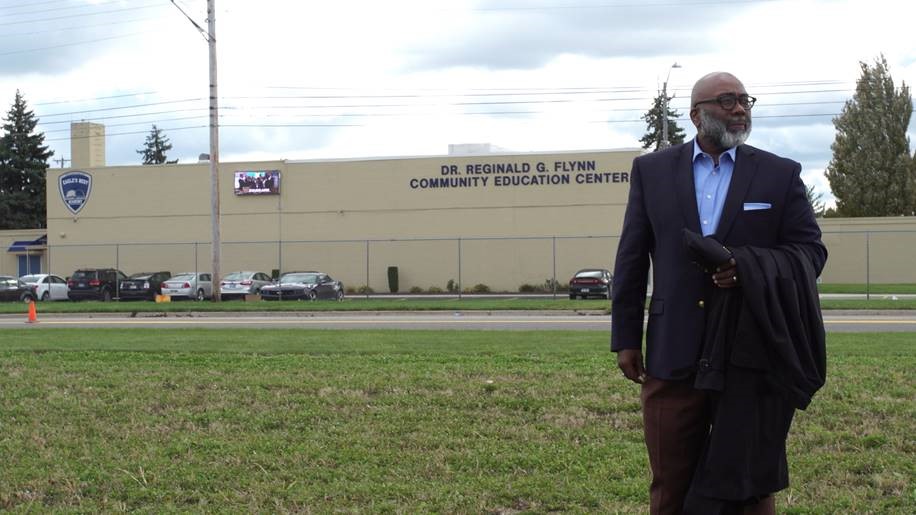Building a Blueprint for Food Sovereignty in Black and Brown Neighborhoods
After the Flint water crisis in 2014, the last two major grocery stores left the city’s northside, leaving residents without access to nutritious foods when they were most needed to mitigate the effects of lead poisoning.
Pastor Reginald Flynn, a Flint native who returned to the city 13 years ago to minister at the Foss Avenue Baptist Church congregation, was not surprised. Nor was he going to beg them to come back. Instead, spurred by residents, he decided to build a new grocery store — one that was owned by the community, not by a corporation.
It’s called the North Flint Food Market and the model relies on membership: Individuals can support the co-operative with a one-time membership fee of $250, becoming co-owners of their local grocery store. For businesses, organizations, and faith-based organizations there is a one-time membership fee of $500. The store will carry pantry staples along with fresh produce, meats and dairy, which will be sourced from local farms given the abundance of fruits and vegetables grown in Michigan, which is second in the nation in diversity of crop production only to California.
Despite the deluge of attention following the water crisis, Pastor Flynn found fundraising for the grocery store to be a long-haul adventure.
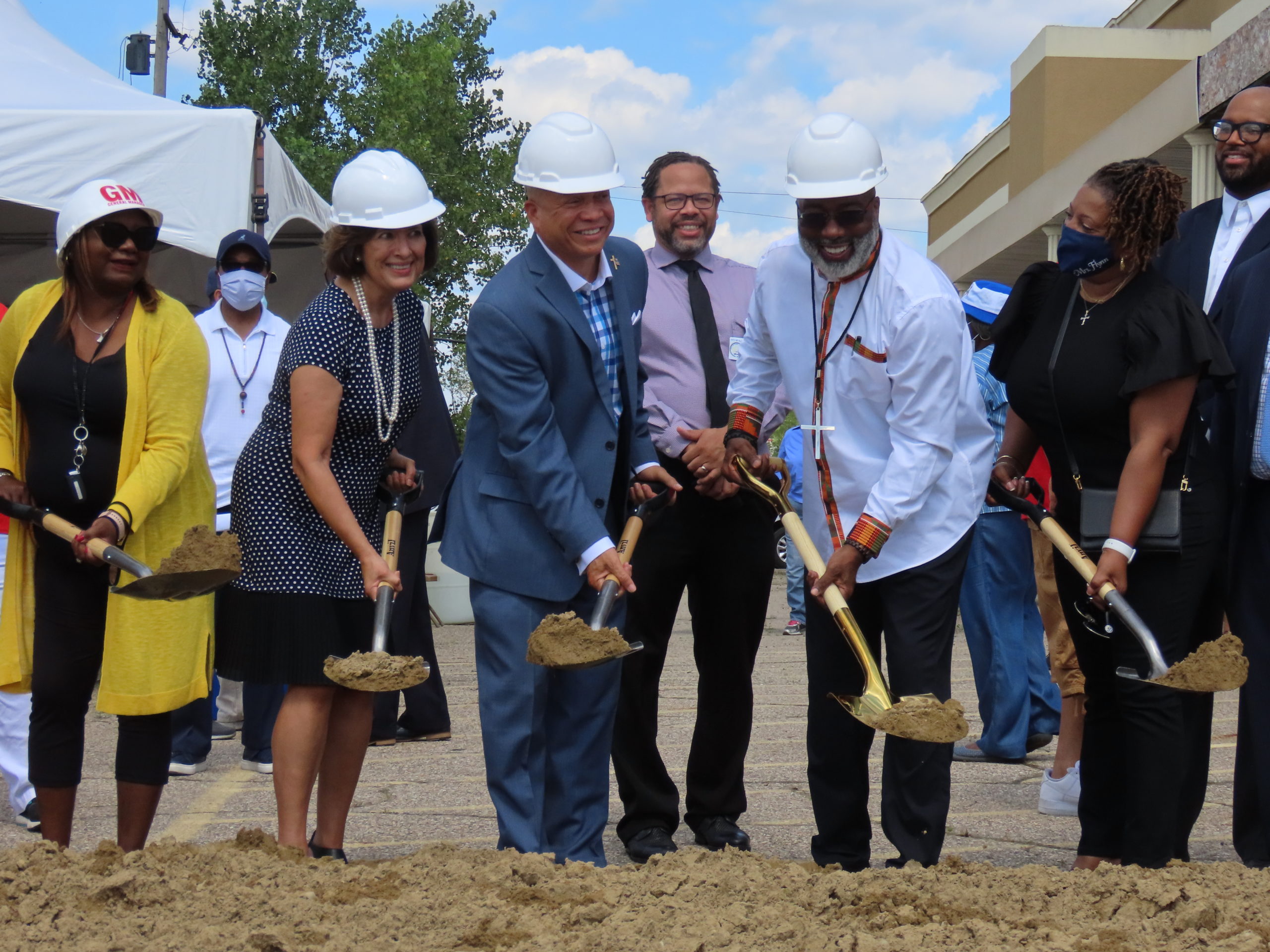
Photo courtesy of Vanessa Ferguson
“I’ve challenged every politician that said they cared about the Black and Brown communities when the water crisis was going on,” he says. “Lots of funding following (the water crisis) went into downtown projects. Few made it into communities like ours. People in poor neighborhoods just didn’t benefit from the dollars that came in then.”
Finally, after six years and many hurdles, the North Flint Reinvestment Corporation, a nonprofit led by Pastor Flynn, has raised over $7 million, and the North Flint Market is scheduled to break ground on August 30, revitalizing a long-vacant building.
Pastor Flynn worked tirelessly to build this co-op, says Daniel Tellalian, Founder and CEO of Angel City Advisors, who’s been a close adviser on the project for the past five years through a partnership with the Michigan Good Food Fund, a statewide collective of partners that provide financing and business assistance to good food entrepreneurs like Pastor Flynn. “Pastor Flynn is a force of nature and has drawn a circle around North Flint. He has a real belief in place-based revitalization.”
The passion behind Pastor Flynn’s tenacity is the food gap in the neighborhood and broader economic and health inequities as the city struggles to reverse the impact of decades of divestment: Flint has a high poverty rate of nearly 40 percent with an average household income of $28,834, alongside high crime, and poor health — all of which has been exacerbated by the COVID pandemic.
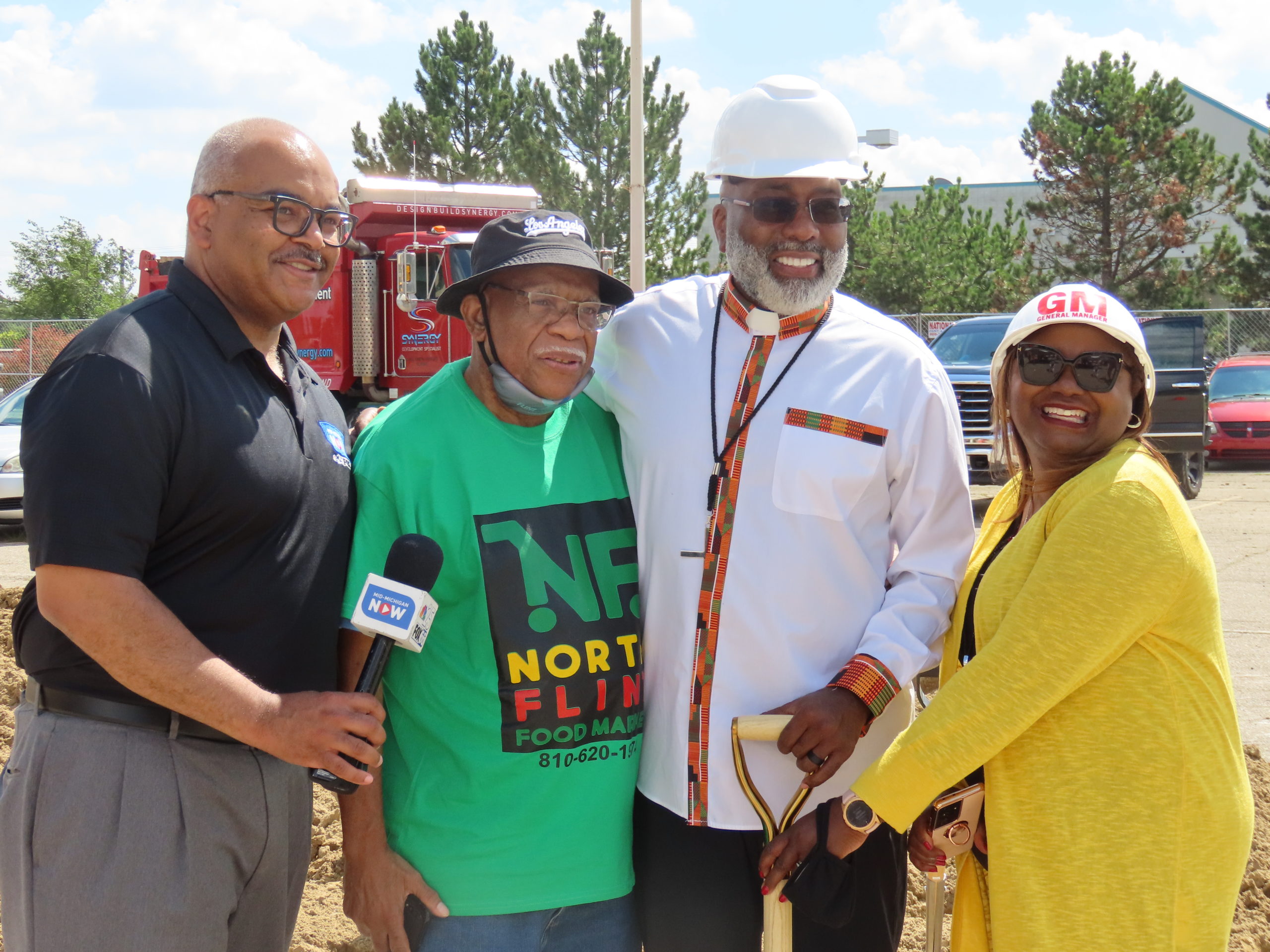
Photo courtesy of Vanessa Ferguson
But these are not just unrelated stats on paper. The options for groceries are genuinely limited, Pastor Flynn says: “Convenience stores where they sell liquor, Dollar stores, Family Dollar are the primary options or then drive out to the suburbs, if you have a car. If you’re not cooking at home, you’re eating at Domino’s, McDonald’s, fast food joints. Foods that are not good for you in the long run.”
To build this neighborhood market, Pastor Flynn looked for inspiration, but found that few urban, Black communities had a working model of a member-led cooperative. “There are just very few examples that we can turn to of successful cooperatives in neighborhoods like ours — urban, poor, and predominantly Black or Brown,” he says.
Tellalian agrees. “Co-op grocery stores are not new. But for this type of community and location, we’re treading new waters.”
Yet that didn’t deter him. Pastor Flynn, who studied faith-based cooperative economics in graduate school and is an ordained minister, is a proponent of self-determination. “Communities that have been excluded from mainstream economics can create their own answers and take care of themselves,” he argues.
Thus, instead of turning to grocery chains to partner with him or innovate their models for the Flint community, he chose to forge ahead with “sheer determination and grit.” Says Pastor Flynn, “This is a place where corporations come and go at their will. We don’t want to be subjected to that. We want to be the solution.”
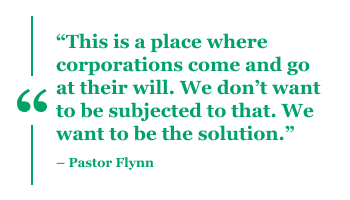
With time and steady partnerships including with the Michigan Good Food Fund, he was able to piecemeal capital together into what Tellalian refers to as a “lasagna of funding” including support from the State of Michigan, the City of Flint, Charles Stewart Mott Foundation, Community Foundation of Greater Flint, Ruth Mott Foundation, ELGA Credit Union, USDA Community Food Projects, Healthy Food Financing Initiative, LISC, and the Food Coop Initiative, among other community funders and New Market Tax Credit partners.
Michigan Good Food Fund was able to provide early financing including initial grant funding from Capital Impact Partners totaling $80,000 to help develop the concept and advance predevelopment. That initial injection of capital, Pastor Flynn says, was pivotal. “That’s a massive problem for communities across the country who are trying to do this — just getting the initial investment.”
More recently, the lending arm of Michigan Good Food Fund’s administrator, Fair Food Network, made a bridge loan to help cover transaction costs, another common stumbling block, especially for community-based organizations that lack deep balance sheets to prepay such expenses.
Beyond capital, the Michigan Good Food Fund team rode the wave with Pastor Flynn, going through the highs and lows, serving as thought partners and collaborators in tackling the financial plan, helping him strategize, and connecting him with a broader community of like-minded food entrepreneurs. That kind of partnership and long-term commitment made it more than just a financier.
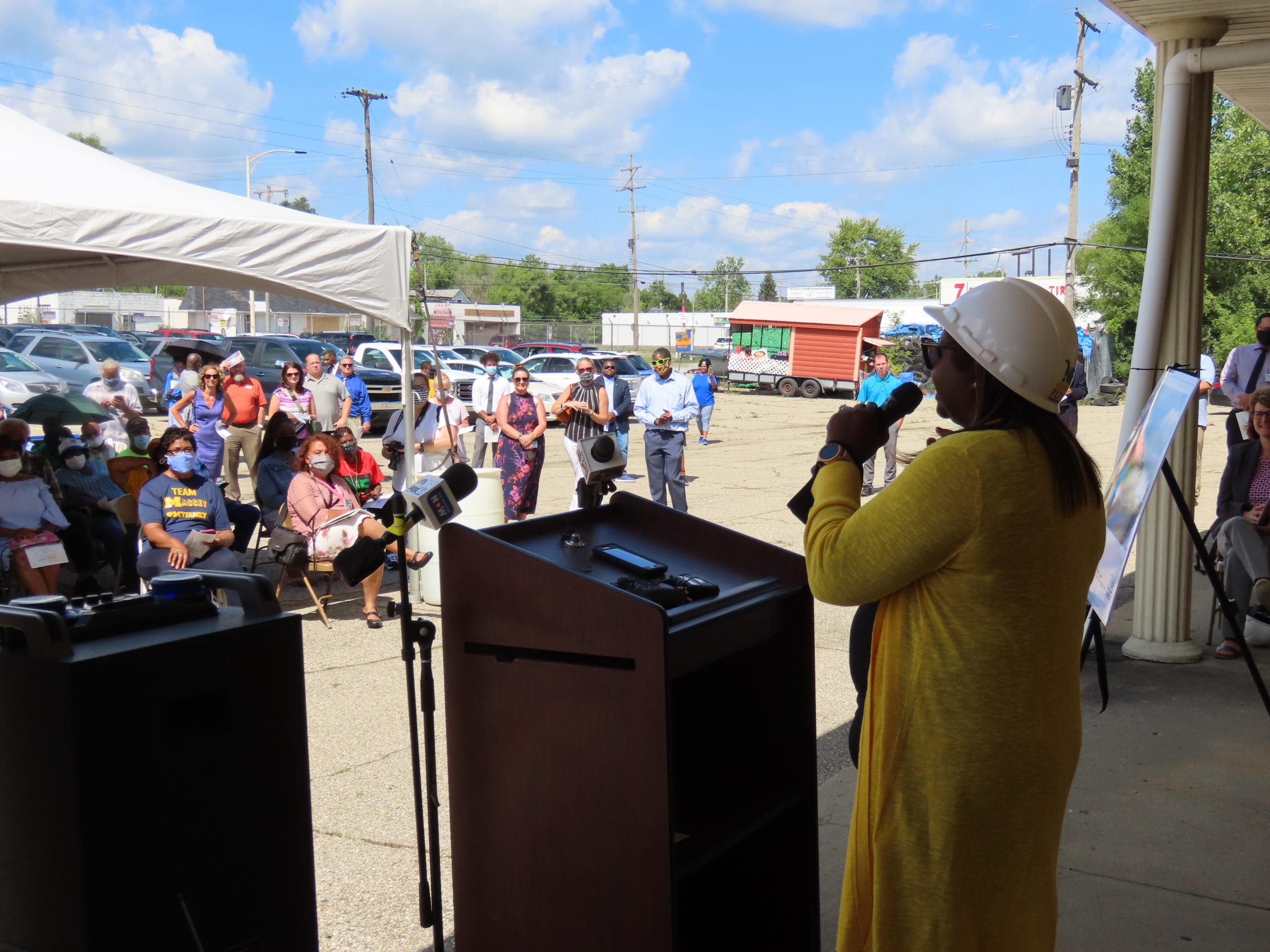
Photo courtesy of Vanessa Ferguson
Where bureaucratic and financial hurdles have been deflating at times, Pastor Flynn found hope and joy in the nearly 900 members who have signed up as member owners and the more than $200,000 that has been raised by the community itself. “I’m so happy to see that people are making this co-op their own.”
And the food market is just the beginning of Pastor Flynn’s vision. His hope is to not just bring affordable food to the community, but spark economic development including affordable housing, healthcare, maternal health services, early childhood education, and community spaces centered around this market. It would be a “health and wellness corridor” in Flint, he says.
Tellalian notes that Pastor Flynn’s work and Flint’s story is emblematic of local movements across the country. As a city that was based on 20th century manufacturing and middle-class families who relied on those industries for work, Flint suffered from an exodus of capital and talent when these industries collapsed. Since then, it’s faced a series of “gut punches,” Tellalian says, but this neighborhood-owned market could now serve as a blueprint for similar communities across the United States where low-income and Black and Brown neighborhoods want better options — and are not turning to the publicly-traded giants in the grocery industry but building it themselves.

